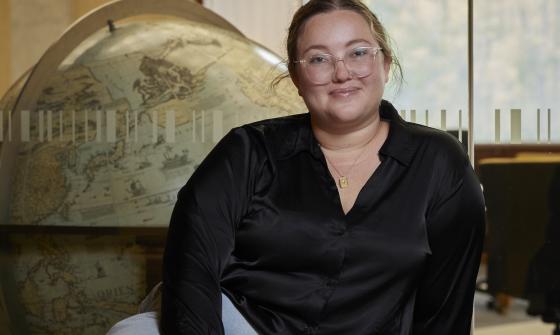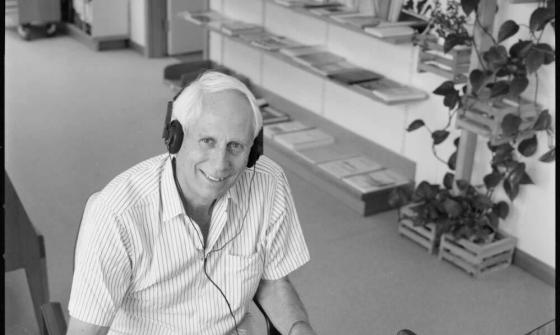Australian responses to COVID-19
We have recently completed the landmark Australian responses to COVID-19 oral history project. This is the largest project of its kind to-date in Australia, with 45 interviewers from across the country recording over 250 interviews.
This extraordinary archive of stories captures the diverse experiences of Australians during the COVID-19 pandemic, from individuals in leadership positions, such as state premiers and chief medical officers, to members of the wider community. These interviews tell of a wide range of experiences from this unprecedented time in Australia’s living memory.
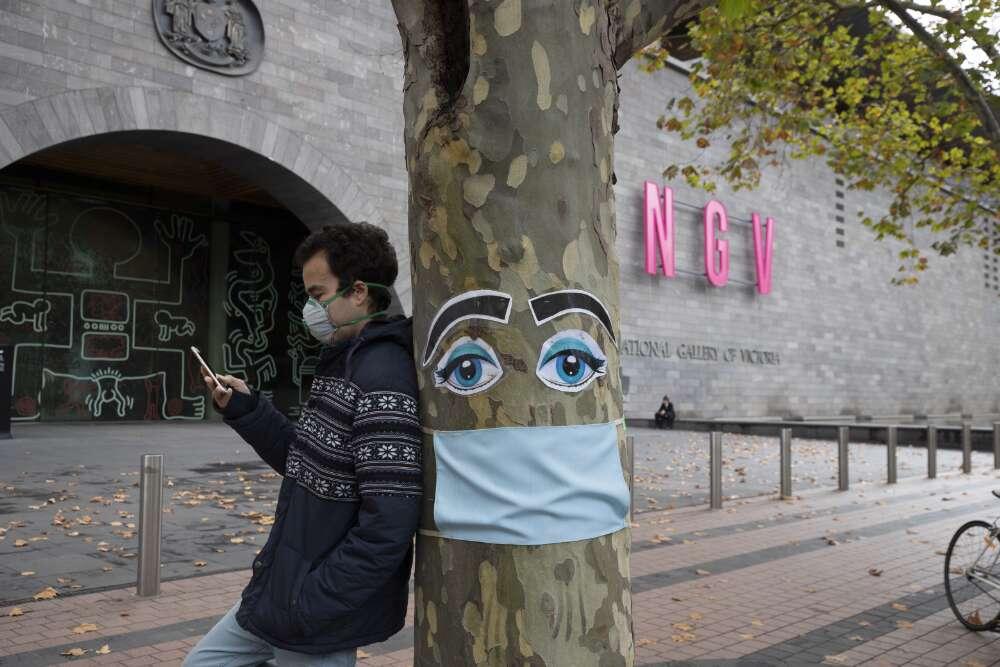
Leigh Henningham, A tree decorated in face mask outside the National Gallery of Victoria, during the COVID-19 pandemic, Melbourne, Victoria, 26 April 2020, nla.gov.au/nla.obj-2726498492
Leigh Henningham, A tree decorated in face mask outside the National Gallery of Victoria, during the COVID-19 pandemic, Melbourne, Victoria, 26 April 2020, nla.gov.au/nla.obj-2726498492
Many interviews capture the initial feeling of uncertainty as the pandemic unfolded, including this interview with Sam de Zoete, a Hobart physiotherapist:
I don’t even remember that early part being too bad, but it was just the unknown of ‘is this going to come? What’s it going to look like when it does?’ and just – the news was just numbers, like in the UK there’s 70,000 people today or this and that. And then you saw it in Victoria and all the places where it was heating up, you just – and at that stage it was quite a deadly disease, it was a high rate of people going into respiratory failure, so it was quite unnerving. And just the thought of what kind of world is this then going to be? For the kids coming through, how’s this going to end? How is this going to play out?
Tegan Taylor, a health and science reporter, also reflected on the early days of the pandemic:
Someone was like, 'Oh, Tegan, what's with this, you know, thing in China?' And I was like, 'Oh… honestly, I think it's a storm in a teacup. Like, I think it's going to be something that they'll intervene and it will fizzle out.' I mean, SARS was the big one and it fizzled out eventually. Famous last words.
Diverse voices, diverse memories
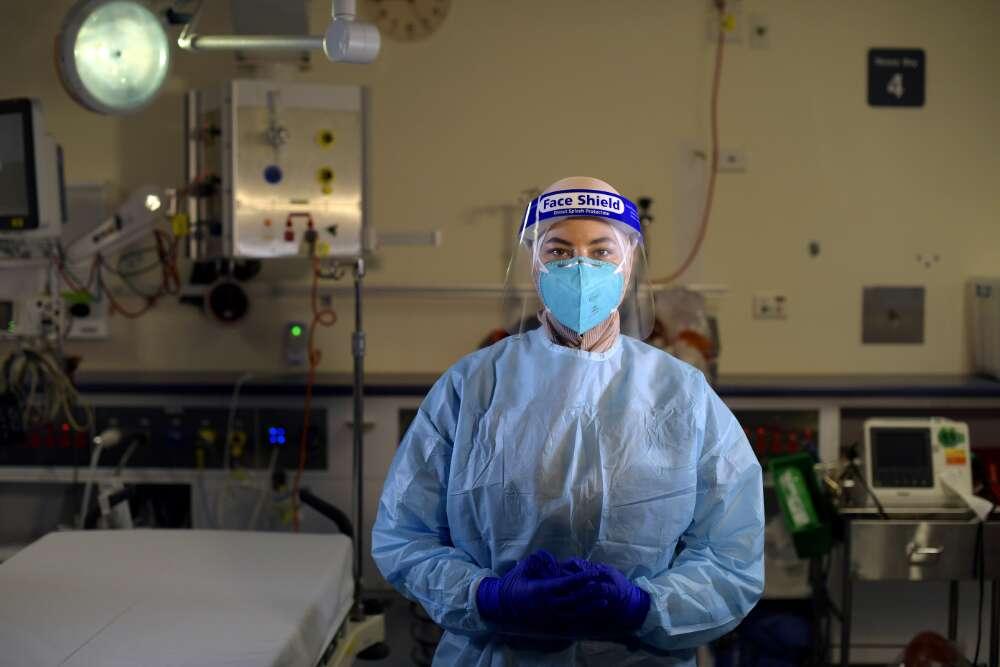
Martin Philbey, COVID-19 Intensive Care Unit nurse wearing full Personal Protective Equipment (PPE) on duty at the Western Hospital, Melbourne, 8 December 2020, nla.gov.au/nla.obj-3072652364
Martin Philbey, COVID-19 Intensive Care Unit nurse wearing full Personal Protective Equipment (PPE) on duty at the Western Hospital, Melbourne, 8 December 2020, nla.gov.au/nla.obj-3072652364
The collection includes interviews with Australians from every state and territory, as well as Australians who lived overseas during the pandemic. Interviewees range from 18 to 93 years old, across all genders, and includes representatives from almost 30 distinct cultural backgrounds, and First Nations communities. There are also several interviews recorded in languages other than English.
Major themes explored in this project include time, health and wellbeing, homes and housing, managing everyday life, work and education, relationships, emotions and public spaces.
In this interview, Gert-Jan de Graaff, CEO of Brisbane Airport, recalls the airport’s emptiness:
We had about 30 days of zero international passengers, whereas it used to be more than 20,000 [passengers] every day… so that was tough and also very confronting, because our international terminal is a very big building. Usually there are thousands of people working there every day, and there was nothing. The only thing you saw was… Australian Federal Police officers, a few health people, a few airline staff. It was really scary stuff.
Stories of heartbreak and hope
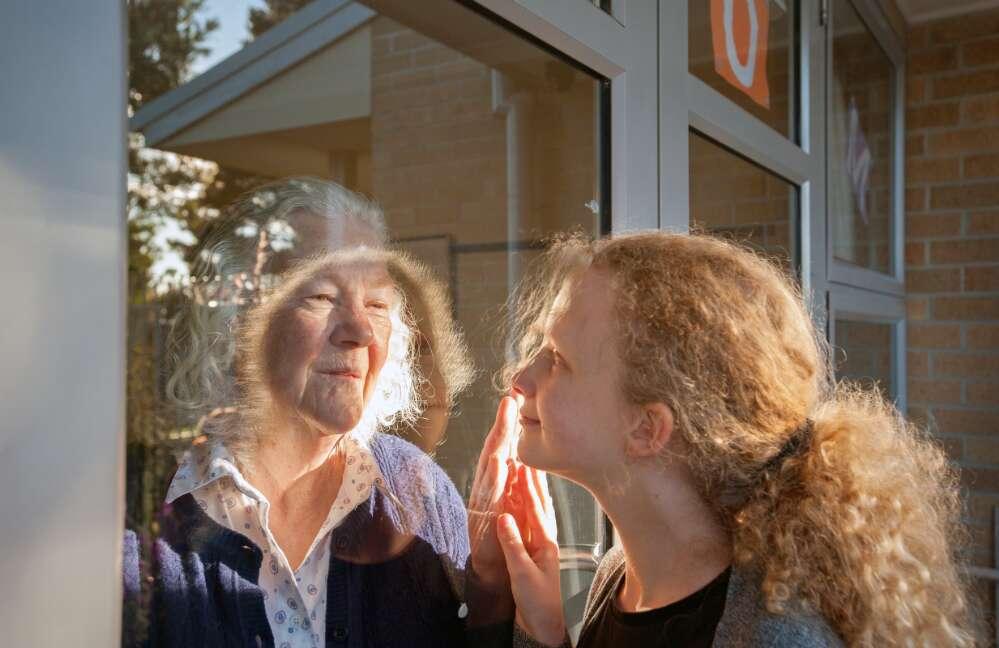
Sandy Scheltema, Margaret Wheeler greeting her granddaughter Alice Sarah-Lay through a window at the Trentham Aged Care Facility due to COVID-19 restrictions, Trentham, Victoria, 26 May 2020, nla.gov.au/nla.obj-2931859303
Sandy Scheltema, Margaret Wheeler greeting her granddaughter Alice Sarah-Lay through a window at the Trentham Aged Care Facility due to COVID-19 restrictions, Trentham, Victoria, 26 May 2020, nla.gov.au/nla.obj-2931859303
The collection records some of the heartbreaking events faced by healthcare workers, such as this interview with then-graduate nurse Bryony Retter:
Everyone was just getting through a shift and going home and coping the best they could. One of the things I had to do on a few occasions, and it was just awful… was when someone was actively dying, I had to hold up an iPad because that was the only way that their families could say goodbye to them, and obviously that’s tragic, because no one should ever have to say goodbye that way.
Interviewees also recall moments of hope, creativity and the resilience of Australian communities, such as this interview with Astrid Jorgensen, founder of Pub Choir:
For a time, it was the closing credits for the BBC World News. They showed ‘Close To You’ and were like ‘Just don’t forget that everything is going to be ok’ and these 1,500 faces would come on... the followers just skyrocketed on this afternoon, and that began a small period of doing Couch Choir … I think it really met a need in the world… it was really special to be able to contribute something.
You can listen to many of the interviews online through Trove. The interviews capture whole-of-life stories, with many starting at the beginning of a person’s life to provide context to their views and reflections.
You can also view collections of photographs relating to the COVID-19 pandemic on Trove, including:
- Sandy Scheltema’s photographs of the COVID-19 pandemic in regional Victoria
- Martin Philby’s series on Health workers and health signage during COVID-19 pandemic
- Leigh Henningham’s street photography taken during the COVID-19 pandemic.
